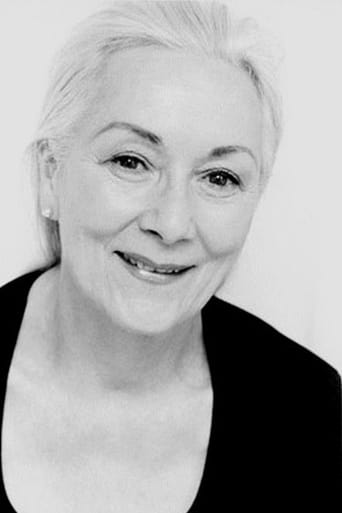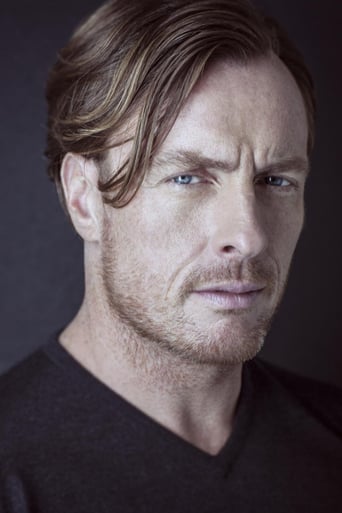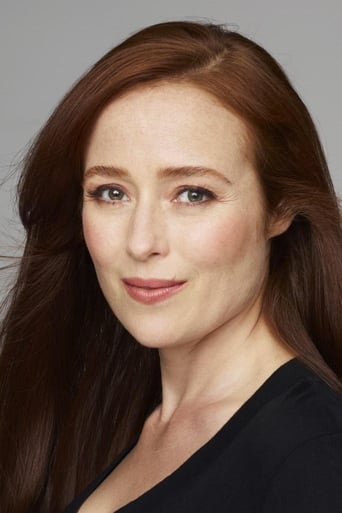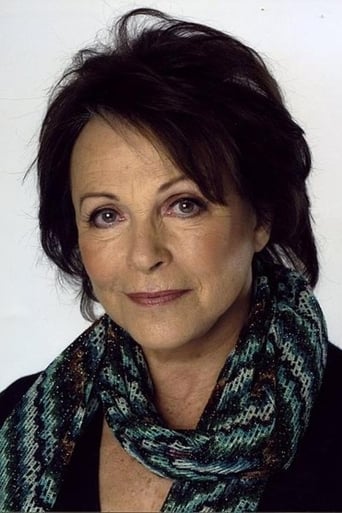ada
the leading man is my tpye
Married Baby
Just intense enough to provide a much-needed diversion, just lightweight enough to make you forget about it soon after it’s over. It’s not exactly “good,” per se, but it does what it sets out to do in terms of putting us on edge, which makes it … successful?
Zlatica
One of the worst ways to make a cult movie is to set out to make a cult movie.
eastbergholt2002
The Camomile Lawn is one of my favorite British TV adaptations. It's based on a book by Mary Wesley, and was first shown in 1992. The director is Sir Peter Hall who founded both the National Theatre and the RSC. There are five episodes and it's compulsive viewing. It's a family drama set during the early years of World War II. In the last episode the characters meet at a funeral thirty years later, giving it similarities to the Big Chill. The main characters are seven cousins / friends who spend part of their summers in Cornwall at the home of Aunt Helena (Felicity Kendall) and Uncle Richard (Paul Eddington). The story begins in August 1939, before the Germans invade Poland. The friends, are mostly 18 or 19 and join the war effort when war is declared. The action then moves to London during the Blitz. The young cast all have an abundance of energy and charisma, especially Jennifer Ehle (Young Calypso), Tara Fitzgerald (Young Polly)and Rebecca Hall (Young Sophy). Philip Larkin famously said that sexual intercourse began in 1963, but he needed to get out more. With death all around them, the lead characters live for today and take a hedonistic approach to sex and booze. As the older Polly says (Virginia McKenna) "it was a happy time." Mary Wesley creates strong female characters who all seem wise, pragmatic and fun. The men mostly seem flawed and weak in some way. They are either dim-witted, obsessed with sex or confused about what they want. Eddington (Uncle Richard) is regarded by his family as something of a joke. Toby Stephens (Young Oliver) plays a left wing idealist who serves in the Spanish Civil War, lusts after Jennifer Ehle and complains about spending his army career running away from the Germans. Oliver Cotton (Max) plays a violinist who escapes from the clutches of the Nazis in Vienna and chases after the entire female cast. In Episode Five we meet older versions of the characters, including: Oliver (Richard Johnson), Sophy (Claire Bloom) and Calypso (Rosemary Harris)who talk about their past. Overall, it's fun, fast paced, beautifully written and brilliantly directed.
TheEnglishman
A story about a family (and associated friends) where most of the characters are either selfish or inadequate seems an unlikely hit, but I continue to find this one of my favorite winter evening viewings. The story is told, as in the book, with flash-forwards that help crystallize your opinions of the characters and their motivations. With promiscuous behavior throughout, various unconventional relationships (Polly and the twins, Max and his town wife/country wife etc), it would have been all too easy for the series to dissolve into an orgy of explicit sex; this was, after all, made by Channel 4, who can teach HBO a thing or too about the subject! It runs along a pace, and as each episode ends, the temptation to just press play and watch the next is strong.The performances are wonderful. I loved Felicity Kendall as the bad-tempered matriarch in the flash-forwards. Jennifer Ehle is, of course, delectable, and completely gorgeous, and acts the pants off everyone. Her accent is a wonderful mids-40s upper-class English, taken straight from Brief Encounter and the like. I didn't realize until today that she was born in North Carolina, I had her marked an English rose! Tara Fitzgerald plays Polly, the most likable character, a strong, self-minded and tolerant person. The male characters are weaker, but Oliver Cotton and the late Paul Eddington make the best of the material they're given.The production is great - period detail is excellent, although perhaps the grimness of war on the Home Front is not given enough emphasis. However, these are privileged people, they would have had it better than the masses simply because they had more to start with.You can watch this series over and over, like rereading a favorite book.
May-11
After reading the rave reviews on this site I bought this DVD. I love British (period) drama, and many favourite actors and actresses were in these mini-series (Jennifer Ehle, Paul Eddington, Toby Stephens...). What can I say? It's absolutely awful. There isn't anything redeeming about it: the plot is ridiculous and boring, the script is embarrassing and all seem to be giving the worst performances of their lives. As mentioned by others, there are lots of delicate issues like adultery etc. and usually I'm fine with it, but in these mini-series all incidents are just uninteresting and ridiculous. For the first time, I gave a 1 out of 10 rating to British mini-series. I'm not even watching the second DVD. P.S.: By the way, I was particularly disappointed with Jennifer Ehle, who I have loved in each and every role (Pride and Prejudice, Possession, Paradise Road).
Paddy-49
This is an exceptional adaptation of a very good novel. Virtually nothing is changed from the original and the story is beautifully told. Whilst it is not really necessary to place this very accessible saga in the context of more acknowledged works of art about the effects of the War on society (e.g. 'Brideshead Revisited') it does stand up well even in such illustrious company.In just a few years attitudes, morals, priorities and sensitivities change beyond recognition for this appealing family group. A rather self-satisfied and indulgent family is first rocked by the effects of the Spanish Civil War (on Oliver). Then in rapid succession, as the effects of the Second World War take their grip, we get a believable series of events which make a modern morality tale.There is adultery; pedophilia; under age sex; bereavement; racial prejudice; a 'marriage' with two fathers and one mother; homosexuality; a manslaughter; a 'flasher'; sentimentality; casual sex; women's liberation; alcoholism; rape… Put like this, of course, its sounds improbable and sensational but in fact it is wholly believable.The women are the stronger characters and it is they who get their act together best to survive the war. Tara Fitzgerald's Polly is the classic example – a brilliant, pragmatic, practical and fabulously desirable woman who decides for herself what is right and brokes no argument. Her secret war work is clearly significant – but she is equally adept at managing her unconventional private life - where she begins a relationship (which endures) with both of a set of twins each of whom fathers one of her children. Jennifer Eale's 'Calypso' is no less determined – although her ambition (to marry a rich man) is selfish and she remains self-centered throughout. But there is honesty in her chosen lifestyle which is no less appealing than that of Polly. The young Sophy (Rebecca Hall) is again a strongly painted character who grows up rather too quickly as a result of the war. In the book this leads to a deflowering by the old goat Max Erstweiler when she is around 14 – although the constraint of the TV adaptation do not (quite) allow this to be seen. Helena (Felicity Kendal), wife of the dull and pompous Richard, also breaks free in war conditions and Max shows her that life need not end at 40 – with satisfying results for them both.Although the men in the story are rather weaker than the women there are some touching vignettes and good performances from Paul Eddington (as Richard) and others. I can unhesitating recommend the DVD to anyone interested in the social changes of the Second World War in England.



